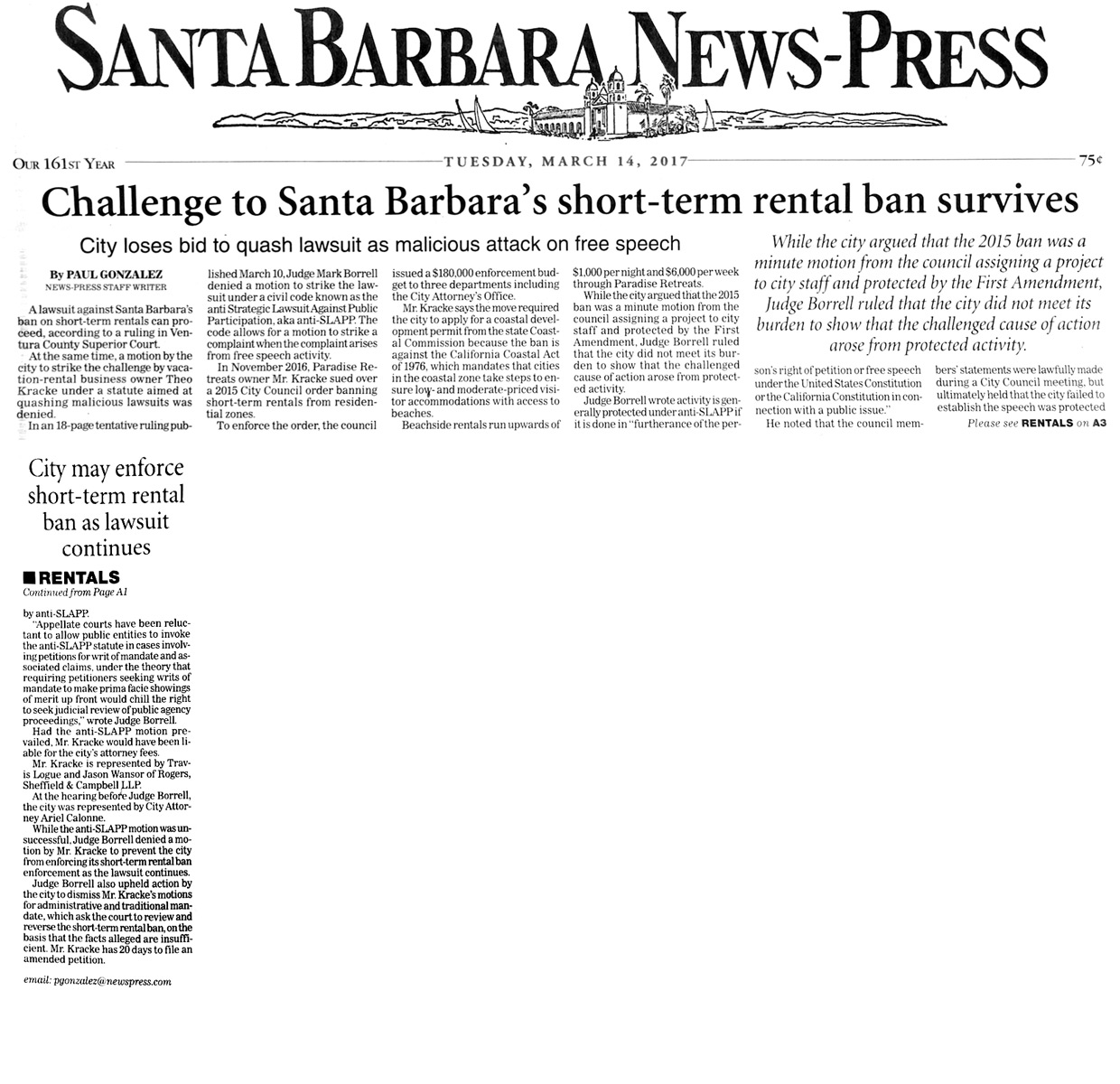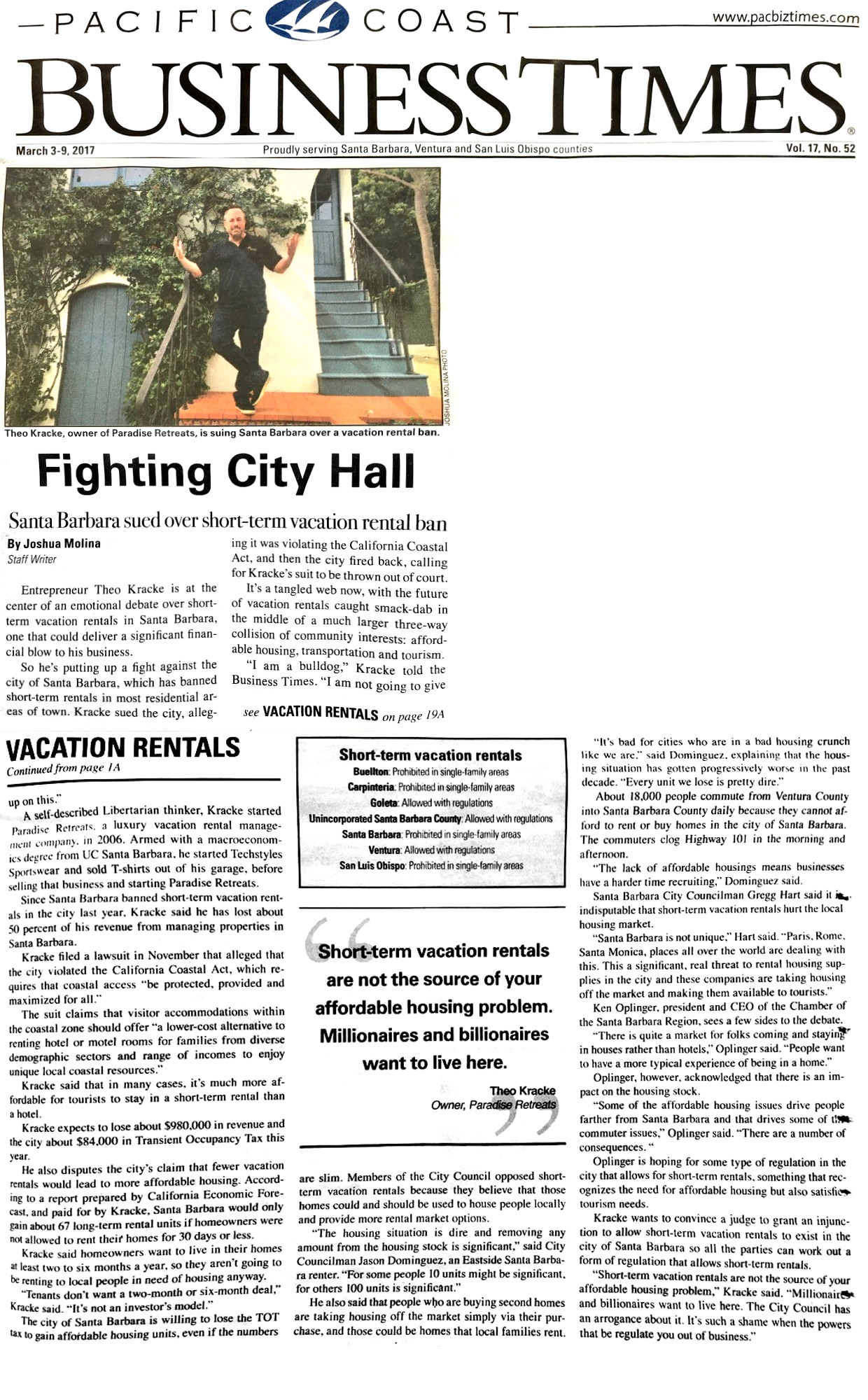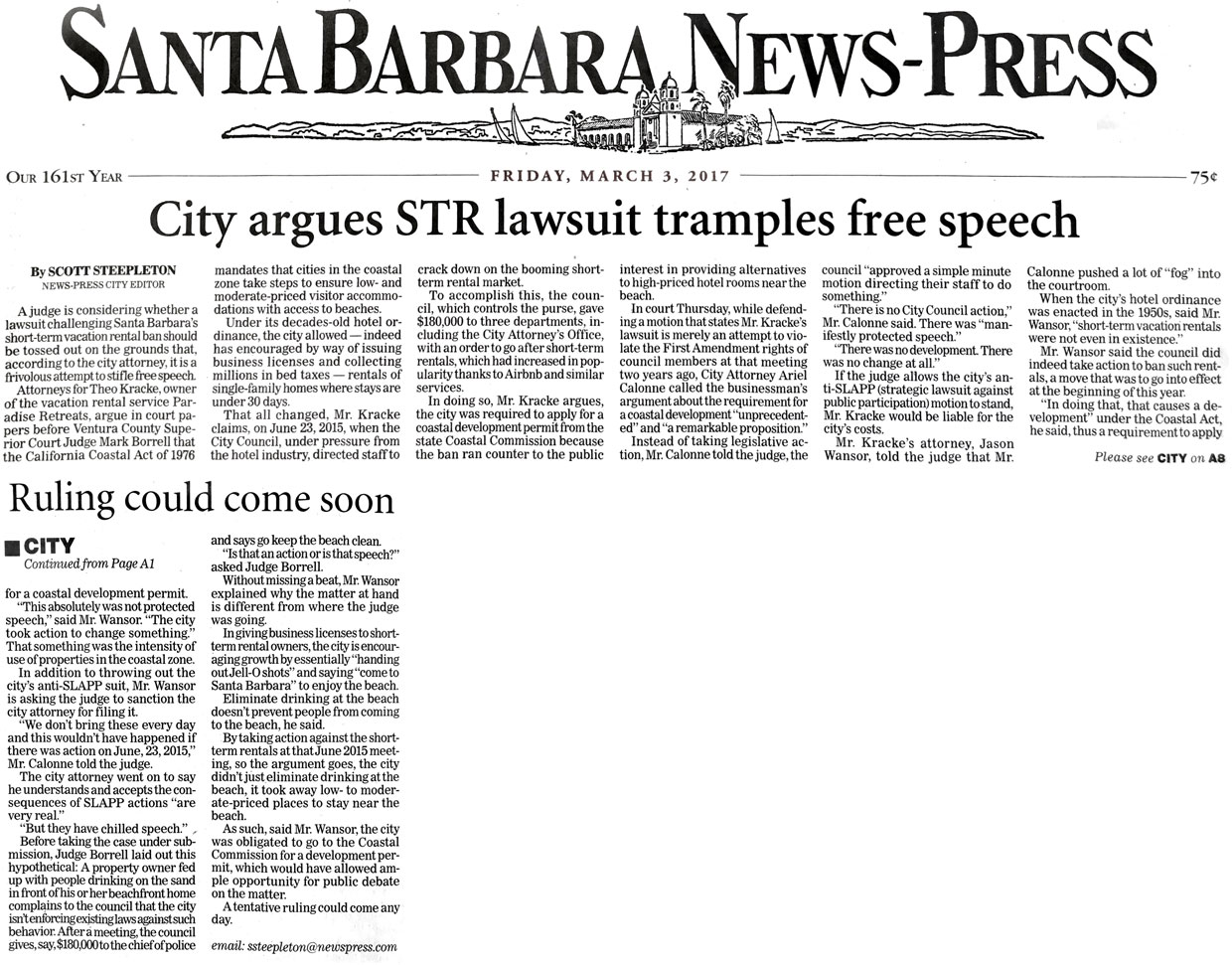By Alys Martinez, KEYT
See the full original article at KEYT.com
SANTA BARBARA, Calif. – The battle over short-term rentals is far from over in Santa Barbara.
Most rentals were banned by the city council, but residents living in an areas where it is permitted are running into difficulty when trying to get city permits.
Betsy Kehoe purchased her home near downtown Santa Barbara two years ago as part of her retirement plan. She lives there full-time and rents out a room in the back. “Initially, it was a wonderful experience,” she said. “We got the permit and the city allowed us to do it.”
But, her pleasant experience changed soon after the city council outlawed short-term vacation rentals in 2015–except in the R-4 zone, which is where Kehoe lives.
Originally, Kehoe operated her short-term rental under a city issued business license and paid a Transient Occupancy Tax (TOT) to rent out the room.
But, once that license expired, Kehoe said she has been unable to get a new permit from the city. “We have to pay a huge fee to go through the permit process, to even sit down with a planner in the planning department to discuss it,” Kehoe said. “Then, it’s wait, wait, wait.”
Kehoe said city officials have not provided a path for her and other owners in R-4 to get re-permitted as short term vacation rentals. “They essentially want us to comply with some process they seem to make up as they go,” she said.
Kehoe was given recommendations by city officials to go through a ‘conversion’ process to comply with commercial hotel ordinances. “I don’t want to become a hotel,” she said. Kehoe was instructed to tear down a wall inside the room she rents, which Kehoe said would cost $70,000. She was also advised to make a parking covenant.
“I don’t think it’s their right to take my property and decide what I should do with it,” Kehoe said. “Now they are making us jump through hoops, and it seems like they are doing this to keep us running around in circles so they don’t have to deal with us and keep us spending our money, hoping we will fall away one by one out of exasperation and frustration.”
Widow Dorothy Wallstein is fighting a similar battle with the city. She relies on her short-term vacation rental to stay afloat. “I was reassured personally by the mayor, the city attorney and two city councilmembers during their changes to the residential areas that I had nothing to worry about because I lived in R-4 and I took them on their word,” Wallstein said.
But, when her license came up for renewal on Dec. 31, city staff told her she too had to go through the planning department.
“When you talk to the planning department on the phone, they won’t answer any questions,” Wallstein said. “They say you have to apply to convert your residence into a hotel and that, that costs hundreds of dollars to even talk to someone.”
Wallstein said she feels the city is demonizing citizens who are trying to abide by the law. “They are making us out to be criminals,” she said.
Wallstein said she may lose it all if something isn’t done soon, “I will not be able to stay in my home if this continues.”
Jarrett Gorin, of Vanguard Planning, is helping his clients with property in the R-4 zone navigate the city’s permit process, which he claims is “made up.”
“They’ve really made up a permit that doesn’t exist. They didn’t go through any of the proper legal procedures to do that. They haven’t proposed an ordinance and the public never had a chance for review and input on this,” Gorin said. “The public is deprived a chance to challenge it because there is nothing to challenge.”
Gorin, Wallstein and Kehoe all said they believe there is a serious disconnect between the city council and the planning department.
“It seems like the staff and the city attorney are keeping the city council in the dark,” said Gorin. “I wonder sometimes who is running the city. Is it our elected decision makers or is it the bureaucrats in the planning department?”
Deputy City Attorney John Doimas said the city previously issued business licenses and collected TOT, but those are tax and regulatory licenses, and not land use licenses which don’t grant a resident to use a property in a ‘specific way’.
Doimas said the city stopped extending business licenses as of Dec 31, 2016 and told the public in August, 2015 that short term rental businesses licenses would not be renewed for people in zones where it was not allowed. “There are areas in the city where it may be permissible, R-4 and C-M,” he said.
According to Doimas who referred to the municipal code, a person has to go through a conversion process to get a permit–on a case by case basis.
City Planner Renee Brooke forwarded the a Short-Term Rental Permitting Process memorandum to the NewsChannel 3 newsroom. To read it click here.
Tiffany Haller is a real estate broker and property manager helping her clients navigate the permit process. She started a group called, “R-4 Property Rights”. So far there are about 36 members.
Haller said she went to the city in August, 2015 to find out how to get a permit. Haller said she could not get a straight answer. “We are really hoping the city council can step up and show some leadership and help property owners get through the process together,” she said.
Haller started a blog about short-term vacation rental enforcement, to read it click here.
See the full original article at KEYT.com




 We have several expensive projects underway which need funding.
We have several expensive projects underway which need funding. 


